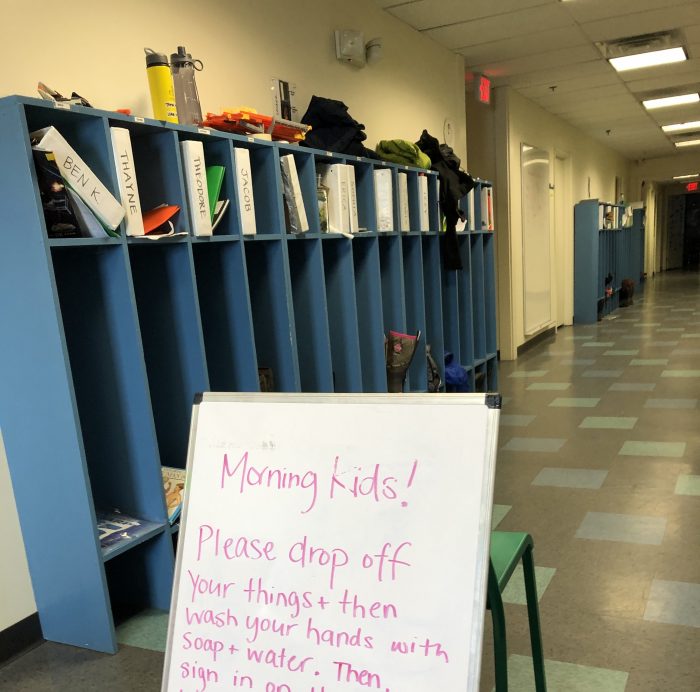
Relephant Read: The Coronavirus is already feeding these Bad Things. Let’s use it for Good. ~ Waylon
Even as adults, we never forget our first large-scale terrifying event.
Depending on our age, it might be September 11, 2001, or the Cuban Missile Crisis.
Some young people have grown up with the slow drip of gun violence: Virginia Tech, Sandy Hook, and Marjory Stoneman Douglas High School created a long-term, scary sense of not being safe for so many.
Whether it is an act of violence or an outbreak of illness, the first public emergency that we are truly aware of is hard to forget.
Middle school-aged kids are given an awful lot of attention for their day-to-day developmental challenges, but are easily overlooked in a crisis. They are old enough to shoot snarky, borderline-disrespectful jokes across the kitchen island, but also crave a tearful hug—sometimes both within a matter of minutes.
How can we calm their fears when they are constantly being reminded to wash their hands, not touch their face, and are preparing for their school to close?
Here are four ways parents best support their middle school-aged kids through the spiraling global COVID-19/coronavirus health crisis:
Be truthful. No age group has a better “full-of-crap meter” than tweens and young teens. They have learned to pay more attention to adults’ facial expressions, tone of voice, and behavior than to our words. A mom who joyfully denies all problems while frantically packing the linen closet with 96 rolls of toilet paper will absolutely send up alarm bells.
Sharing factual information in a calm way that is mindful of their age will help middle school-aged kids feel respected. Avoiding hard topics, glossing over facts, or straight-up lying is the quickest way to send our kids to their friends, YouTube, and Reddit for information.
Check your own anxiety. It’s okay for parents to be anxious about COVID-19. How could we not be? However, remember that with a tween or teen in the house, we are constantly under visual and auditory surveillance. Our actions are being watched, every conversation is being listened to.
Share your emotions with your kids so that their concerns are validated, but do not join them in their anxiety, panic, or catastrophic thinking. If you need support, text a friend or talk to your partner when your kids are not at home.
Monitor and advise their media consumption. When our kids are younger, we can follow the advice to “just turn off the TV.” This is less true with middle school-aged kids, who have the same access as their parents to up-to-the-minute 24-hour news on their iPhone or school Chromebook.
Rather than taking all technology away, model responsible media consumption, and openly discuss your choice to reduce your own screen time. Hopefully, middle school students are not sleeping with technology in their room at night, but if they are, putting a temporary household-wide ban on iPhones under the pillow is important. This goes for parents, too! Openly share the mental health reasons behind your choice with your kids.
Be present. No matter how many times and ways they declare the need to be left alone, middle school-aged kids need their parents close during scary times.
Fold laundry where they are playing video games, or pay bills on the couch where they are texting. Break out a puzzle, paint some rocks, or mix up a batch of cookies from scratch—pretend you are doing it for your own entertainment—and you will be surprised how quickly you have tween and teen company at the table.
Parents who are available to their middle schoolers, both physically and emotionally, during scary times will have kids who are much more likely to share their feelings. When they do start to talk, pause your chores, put down your phone, and listen. No, really listen. As parents, we are often eager to share our bits of wisdom, but compassionate, present listening is how middle schoolers feel heard and understood.
Like every large-scale terrifying event that previous generations have faced, our kids will move through COVID-19. They will remember where they were when their school closed, and how scared they felt as they watched the news reports. But with thoughtful guidance from their parents, they will also remember feeling supported and loved through a difficult time.
~
Relephant Read: create a fun way to remember the 20-second recommended hand washing routine by using their favorite lyrics here.


 Share on bsky
Share on bsky




Read 4 comments and reply